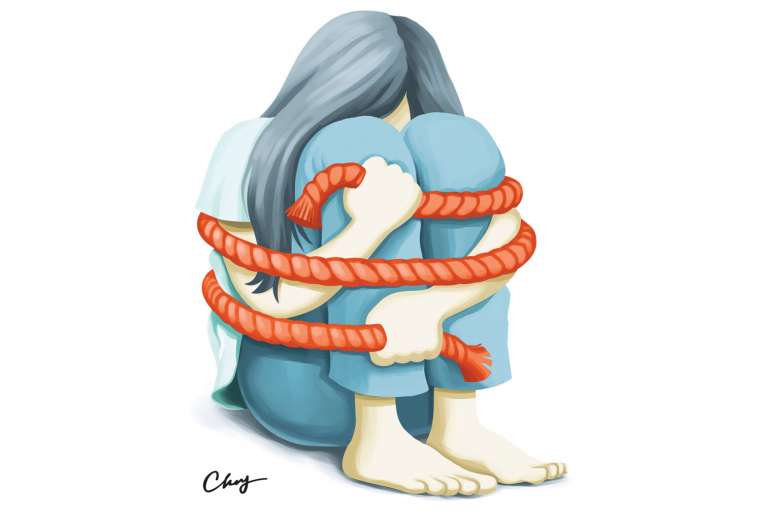When Ow Siew Hoe was sentenced to 12 years’ jail and 12 strokes of the cane for drugging and raping a woman on July 4, it was a case of justice being served.
But the 49-year-old man might have escaped punishment, if the victim, Amy (not her real name), had not agreed to share the details of her ordeal in court.
Shedding light on how rape cases are investigated and prosecuted here, the Attorney-General’s Chambers (AGC) and the police’s Serious Sexual Crime Branch (SSCB) say evidence from victims like Amy is crucial to successful convictions.
“A victim’s testimony in a rape trial is very important, as you know in rape it is very unlikely there would be eyewitnesses due to the nature of the crime,” said deputy chief prosecutor David Khoo, one of two deputy public prosecutors (DPPs) who brought Ow to justice.
The issue boils down to one of consent, in which case it would be the victim’s word against her rapist’s, said Mr Khoo.
“During the critical period of the rape, she has to (tell the court) there was penetration but no consent,” said Mr Khoo, adding that if victims do not give evidence, the prosecution’s case would be weakened considerably.
Ow, also known as Ow-Yong Siew Hoe, was a self-styled spiritual “master”. Amy, a 35-year-old sales assistant, had approached him as she believed there was a “supernatural being” in her flat.
When she visited him at his Bukit Batok flat in February 2014, Ow drugged her with a cup of “holy water” before raping her while she was unconscious.
But the crime so traumatised her, she became suicidal and blamed herself for being foolish enough to get raped. At one point, she told the police she wanted to drop charges and even terminated her phone line so they could not reach her.
But the police did not give up.
Amy was sent for treatment at the Institute of Mental Health, and the investigating officer, Assistant Superintendent (ASP) Zhang Yi Wen, would text her daily to ask how she was, and slowly gain her trust.
“She was very traumatised, she didn’t want to face the court process and talk about (the rape) in court,” said ASP Zhang.
But her evidence was crucial to bolster the circumstantial evidence found in Ow’s home – where the police had found sleeping pills – and his DNA found on her panties.
And Ow had come up with his own version of events – he claimed that they formed a connection and had consensual sex after Amy confided in him her problems.
But Amy was afraid of seeing Ow again in court. To her, he was a “shifu” (Mandarin for master) who had powers to fight ghosts, said Mr Khoo. “These are things we as prosecutors need to be very aware of… You cannot show that you belittle their beliefs or be judgmental.”
And even though Ow decided to plead guilty in the end – meaning Amy did not have to testify – the DPPs needed to prepare her to speak in court in case he changed his mind and the case went to trial.
Amy would go on to have three interviews with the DPPs.
Both prosecutors and the police learnt that two things would calm Amy down when she got hysterical – her 10-month-old toddler, and Chicken McNuggets.
She would hug her child or eat to take her mind off the memory of the rape.
So arrangements would be made to have food and her baby present.
Amy was also assured that there would be a gag order on her identity, and that prosecutors would apply for her to give evidence via a live-video feed instead of being in the same courtroom, said Mr Khoo.
DPP Stephanie Koh said arrangements were made for Amy to visit the actual courtroom and video conference room before the court date.
At her last interview in March – the most crucial before the hearing later that month – Amy recalled her experience in such vivid detail that it “came alive to her”, said Mr Khoo.
She lashed out and crawled to a corner, crying uncontrollably.
“We had to ‘ground’ her, tell her ‘Look at me, you are safe.’… (and) through her sobs and her wailing, she was able to tell me her story,” he said, adding that after that episode, Amy said she was “so relieved to get it off her chest”.
When he was sentenced on July 4, Ow bowed his head in court. Justice Chan Seng Onn told him: “Your heinous sexual acts have inflicted a lasting psychological impact on the victim.”
Said Mr Khoo: “She really is a victim. She’s probably blaming herself, yet you know in this case you really have to seek justice for her.”

This article was first published on July 31, 2016.
Get a copy of The Straits Times or go to straitstimes.com for more stories.






